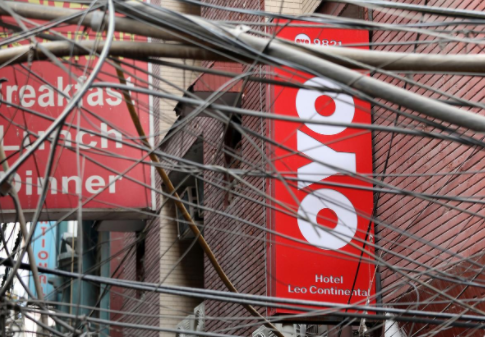London/New York, September 2 (Reuters) – The COVID-19 pandemic will mean holiday-goers will shy away from larger hotels for the foreseeable future in favor of boutiques and home rentals, the CEO of India-based hospitality startup Oyo Hotels and Homes told Reuters.
The comments by Ritesh Agarwal underscore the anticipation within the hospitality industry that the coronavirus outbreak will fundamentally change the nature of travel.
“The hospitality industry will never be the same again, that is absolutely clear,” Agarwal said in a video interview.
“Small hotels are going to be in vogue. In my view, small is going to be the new big, wherein people will rethink a lot about going back to that 1,000-room hotel versus going to a 40-room niche hotel.”
Oyo, founded by Agarwal in 2013 when he was 18, allows guests to book hotels through its mobile app and also franchises its brand and offers standardized amenities at hotels on its network.
Loss-making Oyo, which is backed by Japan’s SoftBank Group Corp, says its network comprises more than 43,000 hotels with over 1 million rooms across more than 800 cities in 80 countries.
The hospitality industry has been one of the most adversely affected by the coronavirus health crisis and Oyo cut thousands of jobs at the height of the pandemic earlier this year.
Gurugram, India-based Oyo has seen some green shoots of recovery, according to Agarwal.
“The last four, five months the company has seen some incremental recovery, especially in geographies such as Europe and the United States,” he said.
In the United States, where Oyo customers are primarily truckers, pharmaceutical reps and so-called essential workers, the company’s revenue per available room is around 92% of pre-coronavirus levels and OYO has seen record sales, Agarwal said.
One of India’s largest start-ups, Oyo was last valued at $10 billion in its most recent private fundraising round in December.
The company has upwards of $1 billion in cash in the bank and Agarwal said COVID-19 had not had an impact on any potential plans for an initial public offering (IPO).
“We did not have a timeline for going public earlier and don’t have one now,” said Agarwal. “We of course continue to keep a close eye on the market and get potential interest of potential capital raise, both private and non-private.”





























































